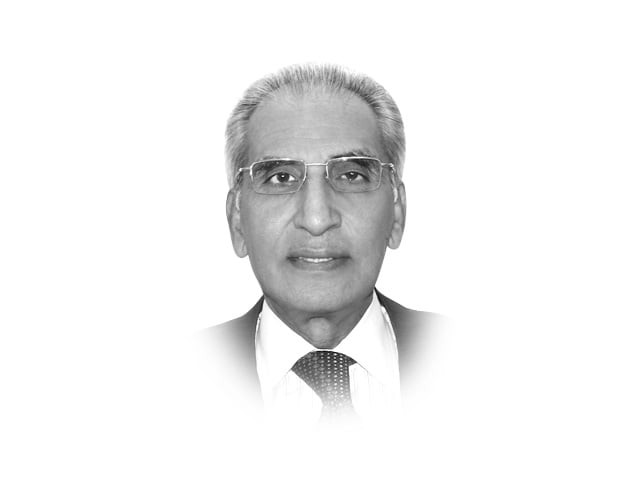Pakistan must seize the opportunities
It needs to recognise genuine improvement of relations with Russia, deepening ties with China serves our interests.

Pakistan must seize the opportunities
The recently concluded meeting of the Shanghai Cooperation Organisation (SCO) leaders in Beijing confirmed the desires of both China and Russia to reinforce their ties with Pakistan, not only in the bilateral sphere, but on the multilateral plain as well. Summit related events also revealed growing unease in both capitals with the foreign policy trajectory of the Obama Administration. Not only has Washington virtually abandoned the much hailed ‘re-set’ in its policy with Russia, but some of its recent decisions demonstrate the absence of an understanding of Russia’s concerns, as evident from the Chicago Nato summit’s declaration that its ballistic missile defence (BMD) had achieved “an interim capability”. This raised fresh questions as to its true purpose, as the recently completed Deterrence and Defense Posture Review stated that “the supreme guarantee of the security of the allies is provided by the strategic forces of the alliance”.
Beijing and Moscow are also convinced that while developments regarding Iran’s nuclear programme and Syria’s human rights record are worrying, US strategic objectives in both countries could have adverse implications for them. Consequently, the Vladimir Putin-Hu Jintao meeting made it clear that SCO countries were strongly in favour of “all parties refraining from remarks and actions that could lead to the escalation of confrontation” on Iran. Similarly, a Chinese foreign ministry spokesman confirmed that both countries “oppose external intervention in the Syrian situation and oppose regime change by force”.
More significantly, the Beijing summit was used by China and Russia to press the SCO’s claim to play a bigger role in Afghanistan, an impression confirmed by President Hu Jintao when he stated that the organisation favoured managing regional affairs within the family while “guarding against shocks from turbulence outside the region”. President Hamid Karzai took advantage of the summit to enhance his own options, confirming that the two countries were working on an agreement for the “creation of a strategic partnership”, while urging China to “play a very significant role in bringing Afghanistan and Pakistan together towards a cooperative environment in the war on terror and radicalism”. Clearly, China, which is already involved in a number of large projects, especially those in energy and copper, is set to move into the country in a far bigger way, including through the training of security forces.
Pakistan can find some comfort in the summit’s deliberations, as well as from recent visits to Islamabad by China’s foreign minister and by President Putin’s special envoy. While China used the occasion to reaffirm support and solidarity with Pakistan — pointedly asking the world to recognise its “huge sacrifices” in the war on terror — Russian envoy, Zamir Kabulov, came with an offer of economic help. The symbolism of these visits — especially at a time when Pakistan has been under tremendous pressure from the US and faces daily accusations by American leaders — was not lost on the region and far beyond. Pakistanis were not mistaken in seeing these gestures as reassuring, more so when viewed against the backdrop of American threats — many of which were made by senior officials while visiting India, revealing extreme insensitivity towards Pakistan’s concerns.
Symbolism can, however, take you only so far. Pakistan has to seize the new opportunities but not merely to fend off American pressure. It needs to recognise that genuine improvement of relations with Russia, along with further deepening of our ties with China would serve our interests well and also respond to the desire of many Pakistanis. But this will not be easy as relations with Moscow remain burdened by the legacy of a difficult past and misgivings about some aspects of our Afghan policy. Nevertheless, a genuine effort must be undertaken, for it would be in our interest as well as that of the region.
Published In The Express Tribune, June 13th, 2012.
Correction: In an earlier version of the story, Shanghai Cooperation Organisation was mistakenly written as Special Communications Organisation. The error has been rectified.













COMMENTS
Comments are moderated and generally will be posted if they are on-topic and not abusive.
For more information, please see our Comments FAQ